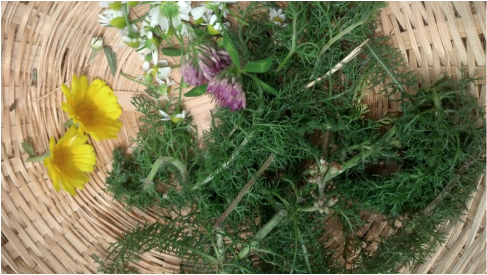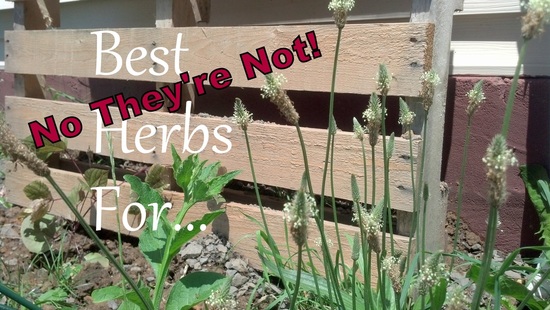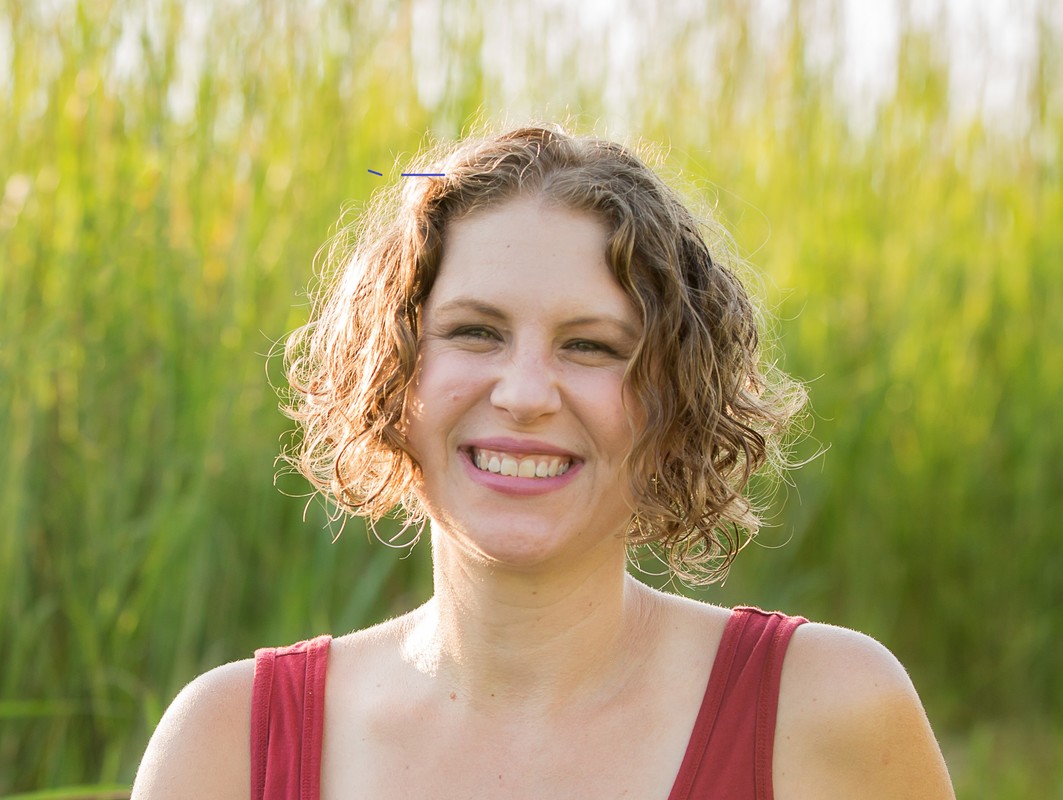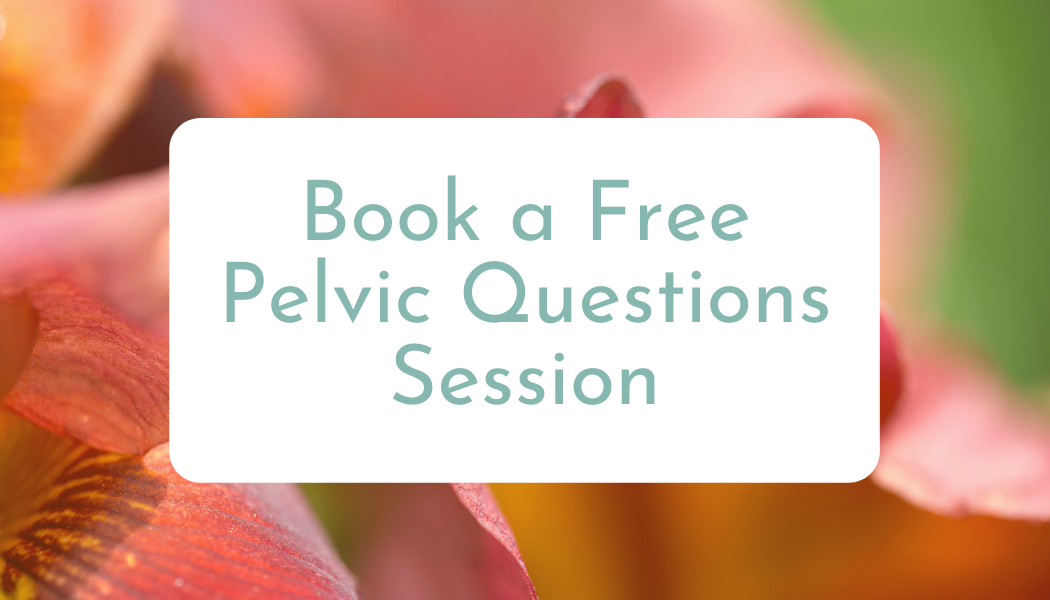|
People new to herbal medicine often want to know: What are the best herbs for my condition? Here’s the thing about herbs, though- they’re not FOR anything. They’re plants, alive like you and me. And just as you don’t exist for a specific reason, to do or be one certain thing all the time, plants don’t either.  Herbs are like personalities- sometimes we match up, and sometimes we don’t. They are quiet and docile, growing and photosynthesizing and doing their thing- until we use them. Then, their chemicals and our chemicals, their energy and our energy, their life and our life mingle and interact and we have alchemy. They change us, and if we chose well they can heal us. Acute Care Our culture has come to understand medicine as a “lock and key” system- define the type of lock, the illness, and the right key will open it and release its symptoms. This works fine with acute or emergency care- a cast for a broken bone, an antibiotic for a severe infection, radiation or chemo or surgery (or all three) for cancer. Oftentimes herbs are great with acute care. Some herbs are so specific in their interactions with us it’s almost like they are just for that purpose. Keep in mind, though, even the most clear-cut person or plant has hidden depths. Echinacea is a great example of this. This lauded plant helps us fight off illness so well that many people pigeon-hole it as the cold and flu herb. If you examine the plant more carefully, by testing it yourself and reading what wise teachers have said, you’ll learn some surprising details, however.
Herbs that help acute conditions quickly often have straightforward energetics and actions, like many of their ‘modern medicine’ counterparts, but still their complexities must be understood to use them effectively. Even a well-known herb like Echinacea can’t be stuffed into a simple “colds and flu” category. Chronic Care Long-term healing with herbs introduces more layers of those complexities, and require a different understand of health. Have you tried to achieve “balance” or “happiness” lately? They’re moving targets, aren’t they? So is “health.” It means different things for different people, at different points in their lives. “Health” isn’t just an absence of disease, since we usually have something going with us. How we manage our changing states of injury and illness and repair and relapse reflects how we each expect our health to be. Chronic or recurring conditions are deeply rooted. Unlike modern medicine, which is focused on our comfort by easing symptoms, herbal medicine is going to address root causes- and that can be a very lengthy, uncomfortable process. Consider stress, the bane of our modern society. There is a whole class of herbal remedies called “nervines” that strengthen and support the nervous system, and relieve the burden of stress. But which to choose? It depends on the type of stress, the type of response you have, and the type of person you are. You may need protection from external influences, or from your own penchant for worry. Your physical nervous system may need rebuilding. You may benefit from warming a cold, tense body, or you may need to cool down a hot head. You may need to ground your energy, or rise above what’s dragging you down. Choosing the right herb or combination can make you stress out even more! (Here we’re really entering the domain of the trained practitioner. All of us can become a competent Kitchen Herbalist, treating most minor issues at home and becoming confident in our self-care independence. But trial-and-error isn't always the most efficient strategy, especially when dealing with 'big things'.) This is why there’s no Herb for Stress, not even a Top 5 or Top 15. There are so many variables, so many considerations that influence how the herbs interact with you. If you don’t believe me, ask 5 people who have tried Valerian (usually “for sleep”) what they thought. Guaranteed, at least one of them will have had a bad reaction- it kept them up and alert all night long. Valerian helps a specific type of person with a certain type of sleep disturbance, and definitely doesn’t help anyone else! All this to say, herbs aren’t simply for our conditions. They are living entities that interact with us in sometimes unexpected ways. The more we understand both ourselves and the herbs, the better they can keep us healthy, but that is only because of who and what they already are themselves. Get to know them and respect them, and you can be healthy all your days.
0 Comments
Your comment will be posted after it is approved.
Leave a Reply. |
Fun Fact: I'm an herbalist and a movement coach. Not a doctor, or a pharmacist, and not pretending to be one on TV.
This is a public space, so my writing reflects my experiences and I try to stay general enough so it might relate to you. This does not constitute medical advice, and I encourage you to discuss concerns with your doctor. Remember, however, that the final say in your wellness decisions are always yours- you have the power to choose, you are the boss of you. And, some of my posts may contain affiliate links. If you make a purchase through them I'll earn a few cents. Thank you for supporting my work. This website is provided for educational and informational purposes only and is not medical, mental health or healthcare advice. The information presented here is not intended to diagnose, treat, heal, cure or prevent any illness, medical condition or mental or emotional condition. Working with us is not a guarantee of any results. Paula Billig owns all copyrights to the materials presented here unless otherwise noted. Categories
All
Archives
July 2021
|
|
info @paulaswellness.com |
DisclaimerThis website is provided for educational and informational purposes only and is not medical, mental health or healthcare advice. The information presented here is not intended to diagnose, treat, heal, cure or prevent any illness, medical condition or mental or emotional condition. Working with us is not a guarantee of any results. Paula Billig owns all copyrights to the materials presented here unless otherwise noted. |


 RSS Feed
RSS Feed

